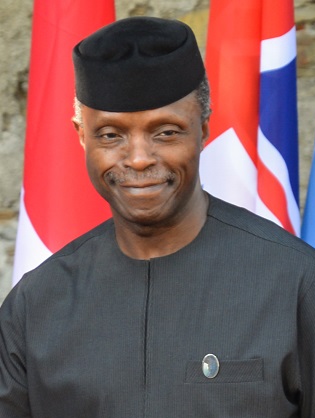
The president of the Soviet Union, officially the president of the Union of Soviet Socialist Republics, abbreviated as president of the USSR, was the head of state of the Union of Soviet Socialist Republics from 15 March 1990 to 25 December 1991.

The President of Pakistan is the head of state of the Islamic Republic of Pakistan. The president is the nominal head of the executive and the supreme commander of the Pakistan Armed Forces. The Presidency is a ceremonial position in Pakistan. The President is bound to act on advice of Prime Minister and cabinet. Asif Ali Zardari is the current President since 10 March 2024.

The Prime Minister of Pakistan is the head of government of the Islamic Republic of Pakistan. Executive authority is vested in the prime minister and his chosen cabinet, despite the president of Pakistan serving as the nominal head of executive. The prime minister is often the leader of the party or the coalition with a majority in the lower house of the Parliament of Pakistan, the National Assembly where he serves as Leader of the House. Prime minister holds office by virtue of their ability to command the confidence of the National Assembly. The prime minister is designated as the "Chief Executive of the Islamic Republic".

The president of the Federal Republic of Nigeria is the head of state and head of government of the Federal Republic of Nigeria. The president directs the executive branch of the federal government and is the commander-in-chief of the Nigerian Armed Forces.

Muhammadu Buhari is a Nigerian politician who served as the president of Nigeria from 2015 to 2023. A retired Nigerian army major general, he served as the country's military head of state from 31 December 1983 to 27 August 1985, after taking power from the Shehu Shagari civilian government in a military coup d'état. The term Buharism is used to describe the authoritarian policies of his military regime.

Ibrahim Badamasi Babangida is a Nigerian retired general and statesman who served as military president of Nigeria from 1985 until his resignation in 1993. He rose through the ranks to serve from 1984 to 1985 as Chief of Army Staff, going on to orchestrate his seizure of power in a coup d'état against Muhammadu Buhari.

Chief Bola Ahmed Adekunle Tinubu is a Nigerian politician who is the 16th and current president of Nigeria. He was the governor of Lagos State from 1999 to 2007, and senator for Lagos West in the Third Republic.

The military dictatorship in Nigeria was a period when members of the Nigerian Armed Forces held power in Nigeria from 1966 to 1999 with an interregnum from 1979 to 1983. The military was able to rise to power often with the tacit support of the elite through coup d'états. Since the country became a republic in 1963, there has been a series of military coups in Nigeria.

The Second Nigerian Republic was a brief formation of the Nigerian state which succeeded the military governments formed after the overthrow of the first republic.
Shettima Mustafa was a Nigerian academic and politician. After an early career in medicine, local administration, and media, Mustafa studied agriculture at university, eventually earning a Doctor of Philosophy degree. He became a commissioner in Borno State and joined the Nigerian People's Party, becoming their vice-presidential candidate in 1983. He was jailed after the military coup of December 1983 led by Muhammadu Buhari. After his release in 1985 he taught agriculture at the University of Maiduguri and became head of the Jos region of the Federal Ministry of Agriculture. Mustafa served as Minister of Agriculture from 1990 to 1992, and in 2007 was appointed Minister of Defence in the cabinet of President Umaru Yar'Adua. In 2008 he became Minister of the Interior but left office with the 2010 dissolution of the cabinet.

The Supreme Military Council was the body that ruled Nigeria after the 1966 coup d'état until it was dissolved following the 1979 parliamentary election and the Second Nigerian Republic. The Supreme Military Council was located at Dodan Barracks as the Supreme Military Headquartered (SMHQ) in Lagos.

Oluyemi Oluleke Osinbajo is a Nigerian lawyer, professor, and politician who served as the 14th vice president of Nigeria from 2015 to 2023. A member of the All Progressives Congress (APC), he previously served as Attorney General of Lagos State from 1999 to 2007 and holds the title of Senior Advocate of Nigeria.

Muhammadu Buhari's tenure as the 15th president of Nigeria began with his first inauguration on 29 May 2015, and ended on 29 May 2023. A retired general and member of the All Progressives Congress from Katsina State, he previously served as military head-of-state from 31 December 1983 to 27 August 1985, when he was deposed in a military coup led by General Ibrahim Babangida. Buhari took office following a decisive victory over incumbent Peoples Democratic Party president Goodluck Jonathan in the 2015 presidential election. Four years later, in the 2019 presidential election, he defeated PDP candidate former vice president Atiku Abubakar to win re-election. Upon his inauguration, he became the oldest president in Nigerian history.

The inauguration of the president of Nigeria is a ceremony to mark the commencement of a new four-year term of the president of Nigeria. During this ceremony, some 90 to 95 days after the presidential election, the president takes the presidential oath of office. The inauguration takes place for each new presidential term, even if the president is continuing in office for a second term.
Ajuri Obari Ngelale is a Nigerian broadcast journalist and politician currently serving as presidential spokesman to President Tinubu. He previously served as presidential senior special adviser on public affairs to President Muhammadu Buhari and was a co-principal spokesperson of Ahmed Bola Tinubu presidential campaign council for the 2023 Nigeria presidential elections which they won. He was a senior reporter and presenter at Africa Independent Television (AIT) and Channels Television.






















